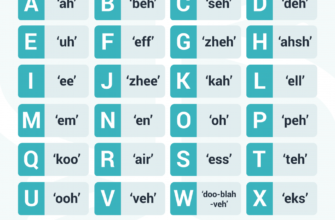Studying abroad can be an exciting and rewarding experience, but it can also be expensive. One way to offset the costs is to obtain a part-time job while studying. Not only will this help financially, but it can also provide valuable work experience and a chance to immerse yourself in the local culture.
Research the Local Job Market: Before applying for a part-time job, it’s important to research the local job market in the country you are studying in. Find out what industries are thriving and what types of jobs are in demand. This will give you a better idea of where to focus your job search and increase your chances of finding employment.
Once you have done your research, it’s time to start applying for part-time jobs. Here are some tips to help you in your job search:
- Update Your Resume: Make sure your resume is up to date and tailored to the job you are applying for. Include any relevant work experience, skills, and qualifications. If you don’t have much work experience, highlight any volunteer work or extracurricular activities that demonstrate your skills and abilities.
- Network: Networking is essential when looking for a part-time job. Reach out to professors, classmates, and local professionals to let them know you are looking for employment. Attend career fairs and networking events to make connections in your field of interest.
- Use Online Job Portals: Many countries have online job portals where you can search for part-time job opportunities. Use these platforms to browse job listings and submit your applications. Be sure to complete your profile and upload a professional-looking photo to increase your chances of getting noticed by employers.
Research Local Job Market
- 1. Investigate the demand: Look into the industries or sectors that are booming in the country you are studying abroad in. This will give you an idea of where the job opportunities lie. For example, if the technology sector is growing rapidly, there might be more demand for part-time jobs in IT or web development.
- 2. Understand work regulations: Each country has its own rules and regulations regarding employment for international students. Research the work permits and restrictions to ensure you are eligible to work part-time. Check if there are any restrictions on the number of hours you can work per week or if there are specific job categories that are off-limits.
- 3. Explore local job boards and websites: Look for local job boards and websites that cater to part-time job opportunities for students. These platforms often have job listings specifically targeted towards international students and can provide valuable information about the types of jobs available.
When researching the local job market, it is also beneficial to reach out to your university’s career services or international student office. They can provide guidance and resources specifically tailored to students studying abroad and looking for part-time work.
Pro Tip: Networking is essential when job searching abroad. Attend career fairs, professional events, and reach out to your network of friends, professors, or alumni who might have leads on part-time job opportunities.
Network with Local Professionals
- Join professional networking events: Attend local industry events, seminars, workshops, and conferences to connect with professionals in your field. These events provide a great platform to meet like-minded individuals and potential employers.
- Utilize social media platforms: Engage with professionals on platforms like LinkedIn, Twitter, and Facebook. Follow industry influencers, join relevant groups, and participate in discussions to expand your network. Don’t forget to maintain a professional online presence and showcase your skills and achievements.
- Contact local organizations and companies: Reach out to local organizations, companies, and professionals through email or phone calls. Express your interest in their field and ask if there are any part-time job opportunities available. Be proactive and persistent in your networking efforts.
- Seek mentorship: Look for professionals who can serve as mentors and provide guidance in your career. Mentors can offer valuable advice, introduce you to their professional network, and help you navigate the job market in a foreign country.
Remember, building a network takes time and effort. Don’t be afraid to step out of your comfort zone and reach out to professionals. Networking can help you uncover hidden job opportunities and increase your chances of finding a part-time job while studying abroad.
Polish Your Resume
- Customize your resume: Tailor your resume to the specific job you are applying for. Analyze the job description and include relevant keywords and skills that match the requirements mentioned in the posting.
- Highlight your education and study abroad experience: Emphasize your educational background and any relevant study abroad experiences you have had. Include the name of your university, your major, and any relevant coursework or projects. Highlight the skills and perspectives you gained while studying abroad, such as cultural awareness and adaptability.
- Showcase your language skills: If you are studying in a foreign country, make sure to mention your language proficiency in your resume. Include the languages you can speak, read, and write, along with any relevant certifications or courses you have completed.
It is important to format your resume in a clean and organized manner, making it easy for employers to quickly scan and understand your qualifications. Consider using bullet points to make your information concise and readable. Additionally, proofread your resume several times to ensure there are no grammar or spelling mistakes. Remember, your resume is often the first impression you make on a potential employer, so it is crucial to present yourself in the best possible light.
Adapt Your Cover Letter

- Research the company: Before writing your cover letter, take the time to research the company you are applying to. Look for information about their values, mission, and work culture. This will help you tailor your cover letter to align with the company’s values and show your genuine interest in the position.
- Highlight relevant experience: In your cover letter, emphasize any relevant experience you have that relates to the part-time job you are applying for. This could include internships, volunteer work, or part-time jobs you have held in the past. Use specific examples to demonstrate how your skills and experience make you a strong fit for the position.
- Address the job requirements: Carefully read the job description and identify the key requirements and qualifications the employer is seeking. In your cover letter, address these requirements directly and explain how your skills and experience fulfill them. This will show the employer that you have taken the time to understand the job and are a qualified candidate.
By adapting your cover letter to the specific job you are applying for, you can demonstrate your interest, qualifications, and fit for the position.
Develop Language Skills

Working abroad gives you the chance to practice real-life conversations and learn new vocabulary related to your job. This practical experience will greatly enhance your language skills and help you become more confident in your ability to communicate in the language. As you continue to work and interact with native speakers, you will also become more familiar with local slang and idiomatic expressions, further enriching your language proficiency.
To fully take advantage of this language development opportunity, consider seeking out a part-time job in a field related to your studies or interests. This way, you can apply your knowledge and skills to your work tasks, and also learn specialized vocabulary and terminology. Additionally, don’t be afraid to ask your coworkers or supervisor for feedback on your language skills or for help with specific areas you want to improve. They will likely appreciate your efforts to learn and grow, and will be happy to assist you in your language development journey.
Benefits of Developing Language Skills through Part-Time Work

- Opportunity to practice speaking and understanding the language
- Real-life conversations and exposure to local slang
- Learning new vocabulary related to your job or field of study
- Increased confidence in your communication abilities
- Potential for specialized language learning in a field of interest
Developing language skills through part-time work can greatly enhance your overall language proficiency, improve your cultural understanding, and open doors to future career opportunities. This valuable language development experience will not only benefit you during your time abroad, but also in your personal and professional life long after you return home.
Apply Early and Follow Up
One effective way to stay organized and keep track of your applications is to create a spreadsheet or table. This will help you keep a record of the companies you’ve applied to, the date you applied, and any follow-up steps you need to take. By organizing your applications, you can easily prioritize which ones require follow-up and ensure that no opportunities slip through the cracks.
- Apply Early: Start your job search as early as possible to increase your chances of finding a part-time job. Many companies begin recruiting for part-time positions well in advance, so be proactive and submit your applications as soon as you have a clear idea of what kind of job you’re looking for.
- Follow Up: After submitting your application, it’s crucial to follow up with the companies you’ve applied to. This demonstrates your enthusiasm and shows that you are genuinely interested in the position. Send a polite email or make a phone call to inquire about the status of your application and express your interest in moving forward in the hiring process.
Tip: Create a spreadsheet or table to keep track of your job applications, including the company name, position applied for, date applied, and any follow-up steps needed.









